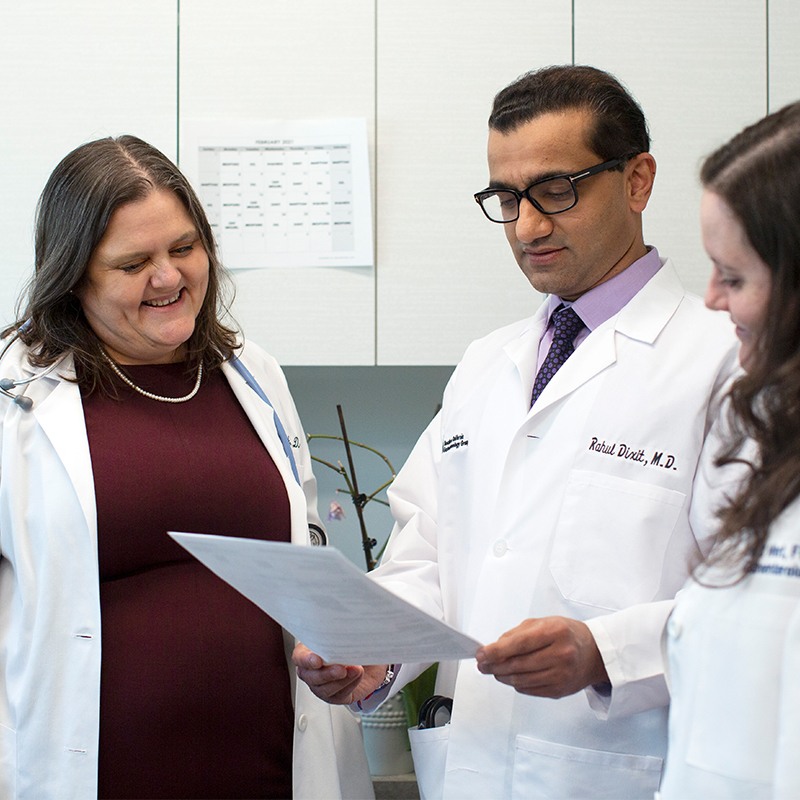Irritable Bowel Syndrome

Overview
Irritable Bowel Syndrome (IBS)
Irritable bowel syndrome (IBS) is a common intestinal disorder. Some people with IBS have minor and occasional symptoms, while others have significant symptoms that can disrupt their daily activities. The cause of irritable bowel syndrome is not well understood. Some common symptoms may include cramping, abdominal pain, bloating, flatulence, constipation and/or diarrhea. IBS is typically a chronic condition that will need long-term management.
You should see your Saint John’s Physician Partners doctor if you have persistent change in bowel habits or other symptoms of IBS since they may indicate a more serious condition.

Symptoms
Irritable Bowel Syndrome Symptoms
The signs and symptoms of IBS vary but are usually present for a long time. You should see your Saint John’s Physician Partners doctor if you have symptoms that may indicate a more serious condition. The most common symptoms include:
Signs and symptoms that suggest a more serious conditions include:
Diagnosis
Irritable Bowel Syndrome Diagnosis
Besides a medical history and physical exam, your doctor may order the following tests:
Blood tests and stool testing
are helpful to diagnose and monitor your IBS
Flexible sigmoidoscopy or colonoscopy
are valuable tools in identifying inflamed tissue, bleeding, ulcers, or abnormal growths in your digestive tract, but a colonoscopy provides more information than a sigmoidoscopy
Upper endoscopy
is a helpful tool in viewing the inside of your esophagus, stomach, and upper portion of your small intestine (duodenum)
Imaging tests
Imaging tests such as X-rays or CT scan
Barium test
Barium test, sometimes called a lower GI series
A simple blood test
can help identify if you have lactose intolerance, gluten allergy, or celiac disease
Breath test
Breath test for small intestinal bacterial overgrowth
Treatments
Irritable Bowel Syndrome Treatments
There is no cure for IBS and treatment is aimed at relieving symptoms so you can live as normally as possible. These include:
- Lifestyle and dietary changes
- Stress reduction
- Medication
Your Saint John’s Physician Partners gastroenterologist will determine, recommend and discuss your specific treatment options as well as risks and benefits so you can make an informed decision on the best treatment for you.
Specialists





